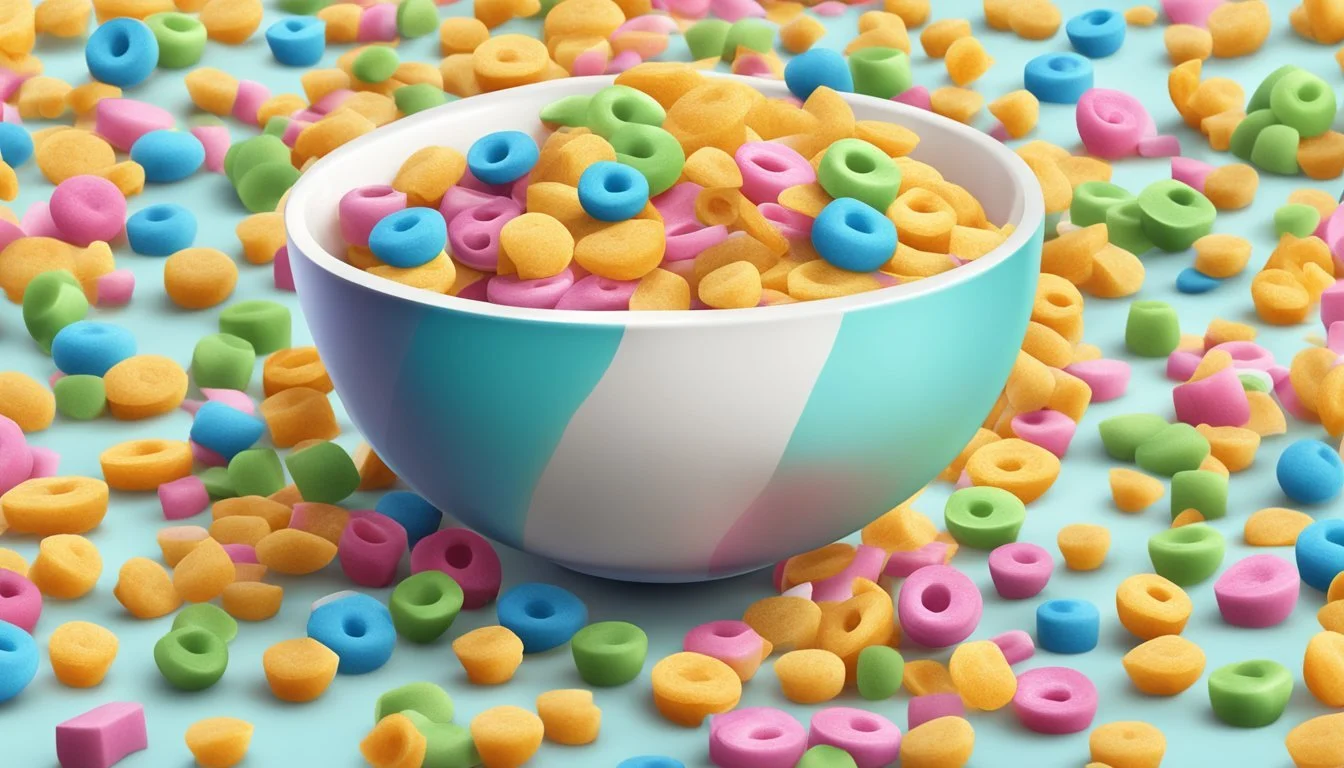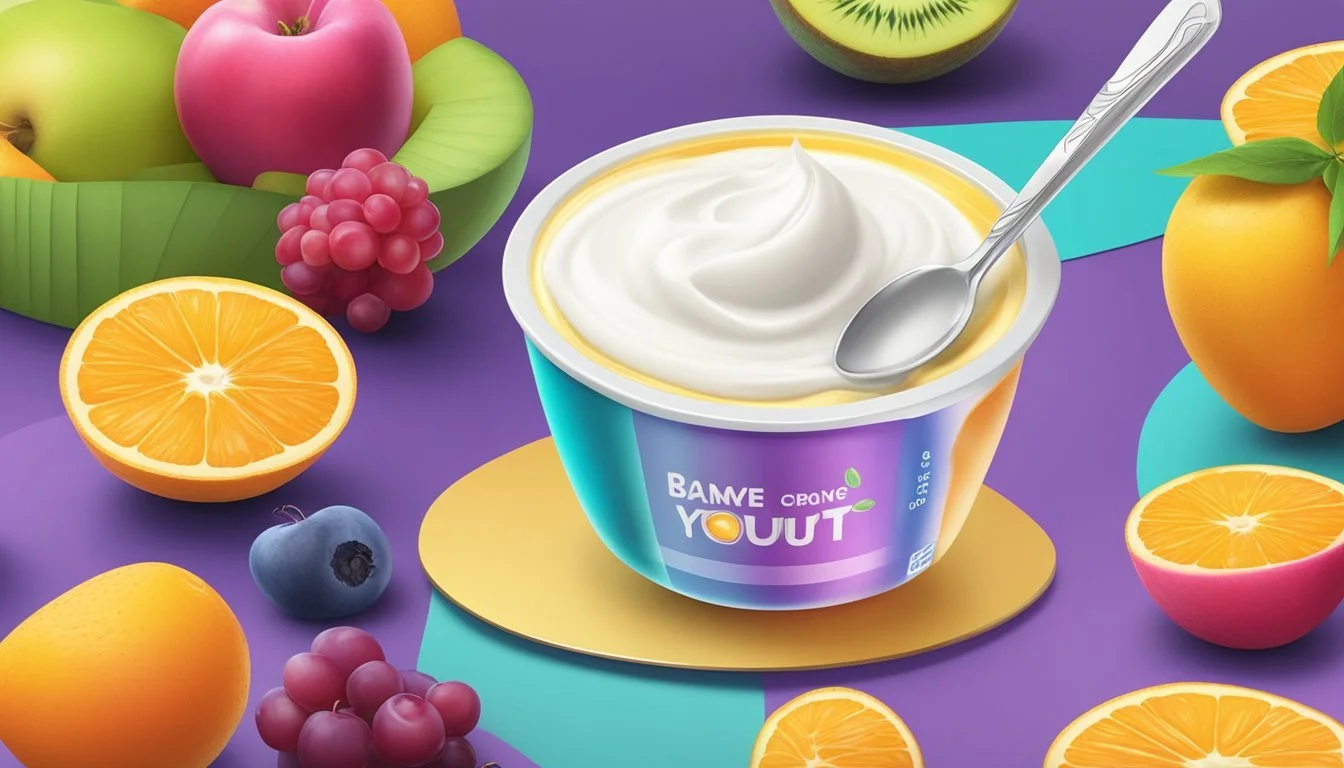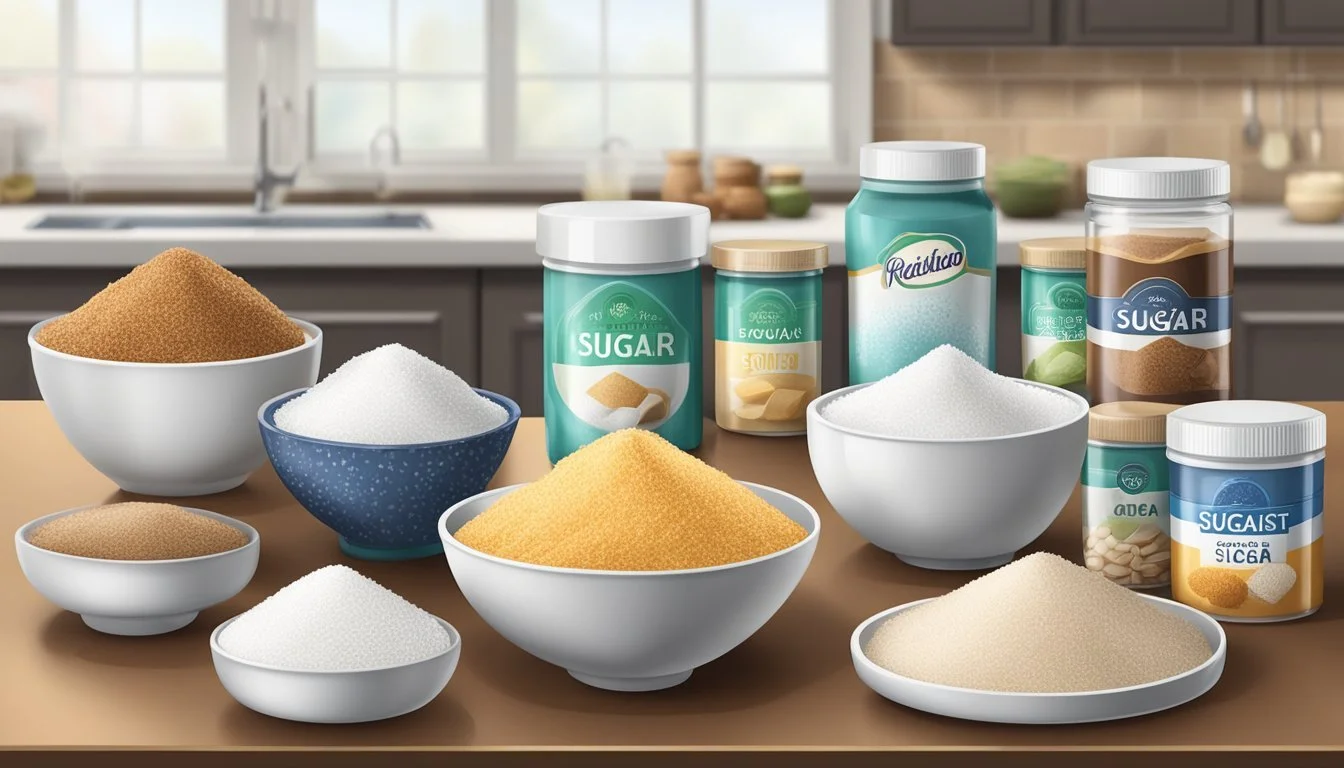Hidden Sources of Refined Sugar in Everyday Foods
Hidden Dangers and Health Risks
In contemporary diets, refined sugars are pervasive ingredients, often hidden in various processed foods. They add sweetness and enhance flavor, making products more palatable and appealing to consumers. Understanding which foods are high in refined sugar can help individuals make healthier dietary choices.
Consumption of high levels of refined sugar can impact overall health, contributing to issues like obesity, type 2 diabetes, and heart disease. The article will outline the types of foods that typically contain significant amounts of refined sugar, offering insights for those who wish to limit their intake.
1) Soda
Soda is one of the most common sources of refined sugar in modern diets. A single can of soda can contain upwards of 39 grams of sugar, which can significantly exceed the daily recommended limit for both men and women.
Most of the sugar in soda comes from high-fructose corn syrup (HFCS). This sweetener has been linked to various health problems, including obesity and type 2 diabetes. The body absorbs HFCS differently compared to natural sugars, contributing to intense sugar spikes and potential long-term health issues.
Frequent consumption of soda can also lead to tooth decay. The high sugar content creates an environment in the mouth that promotes the growth of bacteria, which produce acids that erode tooth enamel.
Soda lacks essential nutrients. It provides calories with no significant vitamins or minerals, making it an empty source of energy. Consuming soda regularly can replace more nutritious beverages, such as water or milk, leading to a less balanced diet.
Many people may not realize how much sugar they consume from soda. It's important to read nutritional labels and be aware of the sugar content in these beverages. Reducing or eliminating soda from the diet can contribute to better overall health and well-being.
2) Candy bars
Candy bars are a common source of refined sugar. Various popular candy bars contain high amounts of added sugars, which contribute significantly to daily sugar intake.
A York Peppermint Patty only has 26g of sugar, making it one of the lower-sugar options. Twix Peanut Butter contains 14g of sugar, which is among the lowest for a candy bar.
In comparison, a Milky Way or Snickers bar usually contains around 30g of sugar, which is above the recommended daily limit for women.
Eating candy bars can quickly exceed daily sugar recommendations. They might be tasty, but they come with significant sugar content that can impact health.
For those watching their sugar intake, checking the labels and choosing options with less sugar helps manage total consumption effectively.
3) Cakes
Cakes are a well-known treat that many enjoy. These delicious desserts often contain high levels of refined sugar, which can negatively impact health.
Commercially baked cakes typically include large amounts of white sugar. The sugar is used to create a tender texture and enhance flavor, making the cake more appealing.
Homemade cakes might also include similar amounts of refined sugar, depending on the recipe. Ingredients such as frosting, fillings, and decorative toppings can add even more refined sugar.
Refined sugars in cakes are absorbed quickly into the bloodstream. This can lead to spikes in blood sugar levels. Repeated consumption may contribute to weight gain, insulin resistance, and other metabolic issues.
Cakes made with whole ingredients, such as whole grain flour or natural sweeteners, provide a healthier alternative. These options retain more nutritional value, and the sugars are absorbed more gradually.
Eating cakes in moderation and choosing healthier versions can help reduce the risks associated with high refined sugar intake.
4) Chocolate Chip Cookies
Chocolate chip cookies are a popular treat known for their delicious taste and comforting texture. They typically contain a variety of ingredients, including refined sugars. Traditional recipes call for granulated white sugar, brown sugar, or both.
The combination of these sugars contributes to the sweet flavor and chewy texture. Butter, flour, and eggs are also staple ingredients often found in these cookies.
Refined sugars play a significant role in the cookie dough's structure. They help to create a balanced sweetness and influence the dough's moisture, which affects the final product's texture. Without refined sugars, the cookies may lack their characteristic chewiness and flavor profile.
Many store-bought versions also contain refined sugars. These mass-produced cookies often have added preservatives and stabilizers, contributing to their long shelf life.
While some might view traditional chocolate chip cookies as an occasional indulgence, their high refined sugar content makes them a concern for those monitoring their sugar intake. For those looking to reduce sugar consumption, various recipes with sugar alternatives are available. However, it's important to note that these alternatives can alter the taste and texture.
Chocolate chip cookies remain a classic favorite but should be enjoyed in moderation, especially for individuals mindful of their sugar intake.
5) Breakfast Cereals
Breakfast cereals are commonly high in refined sugars, making them a less ideal choice for a healthy diet. Many popular brands contain significant amounts of added sugars, which can lead to various health issues.
These cereals often appeal to children and adults alike with their sweet taste and crunchy texture. Manufacturers add sugars to enhance flavor and extend shelf life, contributing to higher sugar content.
Some cereals also include refined grains, which strip away the nutrient-rich outer layers of the grain during processing. This leaves behind a product that spikes blood sugar levels quickly without providing substantial nutrition.
Consumers should check nutrition labels carefully. Cereals marketed as healthy may still contain high levels of refined sugars, despite claims of being low-fat or fortified with vitamins.
Opting for whole grain and low-sugar alternatives is a better approach. Brands featuring oats, bran, and other whole grains without added sugars are more beneficial for maintaining stable blood sugar levels.
Reading ingredient lists and choosing products with minimal or no added sugars can help make breakfast a healthier meal. Simple swaps can significantly reduce daily sugar intake, promoting better overall health.
6) Ice Cream
Ice cream is a popular dessert that often contains high levels of refined sugar. Many commercial brands add a significant amount of sugar to enhance flavor and texture. This contributes to its sweet taste, making it irresistible for many.
Apart from sugar, ice cream contains other ingredients like cream and various flavorings. These can mask the perception of how much sugar one is consuming. Some variations, such as chocolate or cookie-dough flavors, may have even higher sugar content.
Consuming ice cream regularly can lead to increased caloric intake. Refined sugars are quickly absorbed by the body, causing spikes in blood sugar levels. These spikes can contribute to weight gain and other health issues, such as type 2 diabetes and heart disease.
Additionally, many ice creams have added fats and artificial preservatives. These additives can further impact health negatively when consumed in large quantities. Choosing lower-sugar or sugar-free alternatives may help mitigate these risks without sacrificing enjoyment.
7) Fruit-flavored yogurt
Fruit-flavored yogurts are often advertised as healthy options, but many contain high levels of refined sugar. These added sugars can quickly add up, making them less suitable for those trying to reduce their sugar intake.
While the fruit itself provides some natural sugars, manufacturers often add refined sugar to enhance the flavor. This can lead to significant increases in the total sugar content per serving.
Options such as Siggi's mixed berries yogurt contain added sugars. It’s important to read the nutrition labels to know exactly how much sugar you're consuming. Look for yogurts that have minimal or no added sugars, and consider plain versions with fresh fruit.
Choosing plain Greek yogurt and adding fresh berries yourself can control the sugar content. This allows for a healthier alternative, providing the benefits of yogurt without unnecessary additives. Thinking critically about yogurt choices can help manage sugar intake effectively.
8) Sweetened Tea
Sweetened tea is a popular choice for many, especially during warmer months. While it may seem like a refreshing beverage option, it often contains large amounts of refined sugar.
Bottled teas and pre-sweetened tea mixes can be particularly high in added sugars. Some brands add more than 20 grams of sugar per serving, making them comparable to many soft drinks.
Homemade sweetened tea is not exempt from this issue. Adding sugar directly into the tea, whether while brewing or afterward, can significantly increase its sugar content. It's easy to lose track of the amount of sugar added, leading to an unexpectedly high intake.
For those looking to reduce sugar consumption, unsweetened tea or tea naturally sweetened with slices of fruit or a splash of juice can be healthier alternatives.
9) Energy drinks
Energy drinks are popular for providing quick energy boosts, especially among young adults and athletes. Despite their benefits, they can be loaded with refined sugar.
A standard sports drink bottle may contain up to 30-35 grams of refined sugar. This amount exceeds the daily recommended intake for many individuals.
High sugar content in energy drinks contributes to potential health risks. These drinks can lead to increased calorie intake, weight gain, and metabolic issues.
Consumers often overlook the refined sugar in these beverages, attracted by their marketed benefits. It's important to read labels and be aware of the sugar content in energy drinks.
Opting for lower-sugar alternatives or natural hydration options can be healthier choices for those needing an energy boost.
10) Pre-packaged pastries
Pre-packaged pastries often contain high amounts of refined sugars. These convenient treats may include cakes, muffins, and other desserts. Their long ingredient lists frequently feature added sugars, resulting in elevated calorie counts.
In addition to sugar, pre-packaged pastries are usually high in saturated fats. This combination can be detrimental to health, contributing to conditions like obesity and heart disease.
Many ingredients in these pastries provide little nutritional value. They lack essential nutrients like fiber, vitamins, and minerals, making them an unhealthy choice for regular consumption. Choosing fresh, homemade alternatives can be a better option for those looking to manage their sugar intake.
Health Impacts of Refined Sugar
Refined sugar consumption has significant effects on the body's metabolism and dental health. These impacts can be profound and long-lasting.
Metabolic Effects
High intake of refined sugar disrupts the body's metabolic processes. It leads to rapid spikes in blood glucose levels. This can cause insulin resistance over time, a key factor in developing type 2 diabetes.
Excessive sugar also encourages fat storage. This increases the risk of obesity. Obesity is linked to numerous health problems, including cardiovascular disease.
Elevated sugar intake contributes to chronic inflammation. This inflammation can exacerbate conditions like arthritis and asthma. Additionally, it may increase the risk of developing certain cancers.
Dental Health Risks
Refined sugar is a major cause of tooth decay. Bacteria in the mouth feed on sugar, producing acids that erode tooth enamel.
Frequent consumption of sugary foods and drinks accelerates cavity formation. It can also exacerbate periodontal (gum) diseases.
Proper oral hygiene can mitigate some effects. However, high sugar intake consistently poses a risk to dental health.
Reducing refined sugar and opting for natural alternatives can offer better protection for teeth. This also promotes overall oral health.
Types of Refined Sugars Used in Foods
Refined sugars are prevalent in many processed foods, and they come in various forms. Two commonly used types in the food industry are high fructose corn syrup and white sugar.
High Fructose Corn Syrup
High fructose corn syrup (HFCS) is a sweetener made from corn starch. It involves converting some of its glucose into fructose using enzymes. HFCS comes in different concentrations, typically HFCS 42 and HFCS 55, which denote the percentage of fructose they contain.
HFCS is extensively used in soft drinks, candies, and baked goods due to its cost-effectiveness and sweetness. It's favored by manufacturers for its ability to retain moisture, maintain texture, and extend shelf life. However, HFCS has been linked to various health concerns, including obesity and insulin resistance.
White Sugar
White sugar, also known as table sugar or granulated sugar, is derived from either sugar cane or sugar beets. The refining process involves extracting the juice, purifying it, and crystallizing the sugar, which results in pure sucrose.
White sugar is widely used in households and in the food industry. It's a common ingredient in desserts, beverages, and a variety of processed foods. Its versatility makes it a staple for sweetening, baking, and preserving foods. Despite its widespread use, excessive consumption of white sugar is associated with health issues like tooth decay, weight gain, and an increased risk of chronic diseases.
Alternatives to Refined Sugar
Exploring alternatives to refined sugar can improve health by reducing empty calorie intake and providing additional nutrients. Below are detailed insights into natural sweeteners and sugar alcohols as healthier substitutes.
Natural Sweeteners
Stevia
Stevia is derived from the leaves of the Stevia rebaudiana plant. It is a popular natural sweetener with zero calories and does not impact blood sugar levels. Stevia is highly concentrated, so a small amount is needed to achieve the desired sweetness. It's available in various forms such as liquid extracts, powders, and granules.
Raw Honey
Raw honey is another alternative, offering antioxidant, anti-inflammatory, and antimicrobial properties. It contains vitamins and minerals and is sweeter than refined sugar, so less is required. Note that it still has calories and carbohydrates, so it should be consumed in moderation.
Maple Syrup
Maple syrup, derived from the sap of sugar maple trees, is rich in minerals like zinc and manganese. It provides a unique flavor and is often used in cooking and baking. It has a lower glycemic index compared to refined sugar but should still be used sparingly due to its calorie content.
Sugar Alcohols
Xylitol
Xylitol is found naturally in some fruits and vegetables. It has about 40% fewer calories than sugar and does not spike blood sugar levels. It's often used in sugar-free gums and dental products because of its potential to reduce the risk of tooth decay.
Erythritol
Erythritol is a low-calorie sugar alcohol that occurs naturally in certain fruits. It’s about 70% as sweet as sugar but has minimal impact on blood glucose and insulin levels. Erythritol is also less likely to cause digestive issues compared to other sugar alcohols since it is mostly absorbed in the small intestine.
Sorbitol
Sorbitol, found in fruits like berries and apples, is less sweet than sugar and contains about two-thirds of its calories. It's commonly used in sugar-free candies and baked goods. While generally safe, excessive consumption can cause digestive discomfort due to its laxative effect.
Using these sugar alternatives can help reduce the intake of refined sugars, contributing to better health outcomes.










